— January 25, 2018

Tumisu / Pixabay
Entrepreneurs should know how to manage their time, finances and human resources well.
And that’s not all. They should make the right product, communicate the right message, offer flawless customer service and sustain a great team. Hitting a home run on all these fronts is tricky.
Here are some of the mistakes that some startups routinely make.
1. Getting distracted by different ideas
As Dan Ariely’s experiment shows, we have trouble letting go of the unknown, be it a growth tactic or a prospect that could or could not work out. These “virtual lottery tickets” distract us from what we should be really doing. In other words, when you don’t have a firm grasp over the balance sheet you end up spending money in the wrong places – even when you don’t have any.
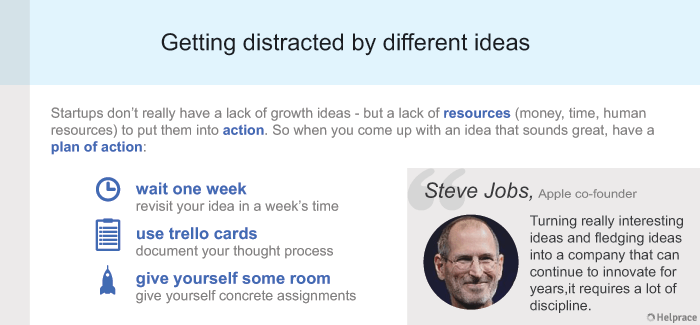
Startups don’t have many resources (be it money, manpower, time) and the fear of prioritizing one activity over another is quite big. Here is a way to prioritize your marketing ideas, product improvements and growth tactics.
2. None or poor planning skills
Businesses have to wear many different hats at the same time. As a result, they tend to struggle when it comes to breaking activities into smaller, doable tasks.
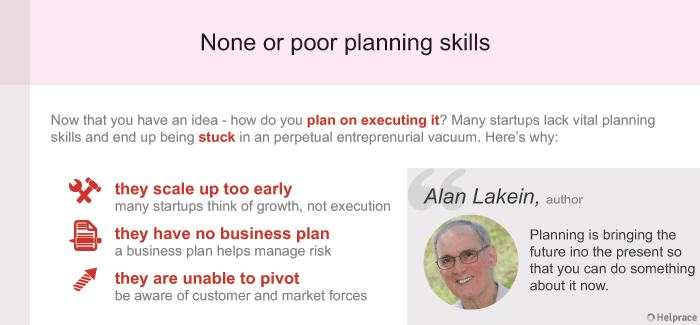
Planning also allows you to include certain rewards during completion of each crucial step. This gives you greater energy, more predictability and determination to keep going ahead.
3. Downplaying the importance of design
First impressions are everything. An enticing storefront, a clean showroom or a well-organized and responsive website – the right language can connect you with your target customer base. Good design increases time on site, shareability, conversions – you name it.

Just like everything, good design requires time and money to get done right. It may not make sense to spend money on design at first, but cheap design shows – and makes your product appear the same way.
4. Not investing in team culture
What does your business stand for? Can you align its goals with your employees? One of the biggest mistakes startups make is putting a team in place – without a clue on how to get them to work together.
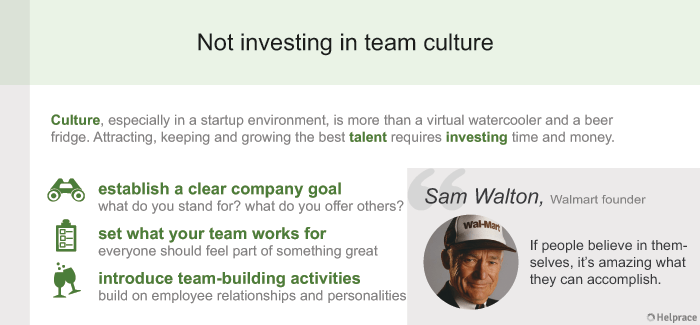
Establishing a culture helps you define how you fit in the equation, too. Everyone likes the idea of being a “nice guy” and run a successful business; however it’s a lot of work. Nobody wants an autocratic boss and not everyone can work effectively under a manager who’s too laid back, either.
5. Forgetting about due diligence
It’s easy to get caught up in the excitement of startup life. However, remember not to fall for the spoken word and get things down on paper. If it’s an employee, make sure all of their credentials and diplomas check out. If it’s a partner, use an attorney and document everything before taking action.
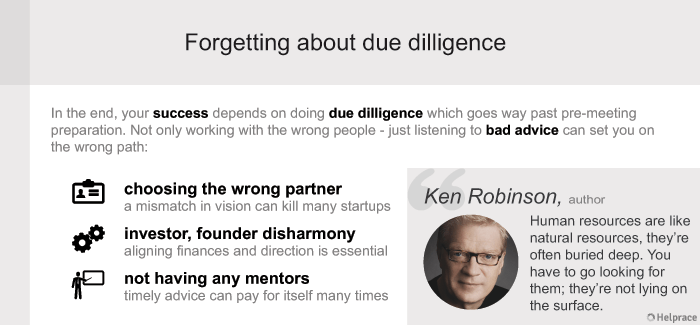
Don’t underestimate the power of networking. Networking may be a lot of work, but knowing the right people is priceless. The more people you can count on to give you timely advice and support the better chances of your long-term success.
6. Being too careful about taking risks
It’s normal to get cold feet before making a big decision. Sometimes you need to double, triple check – or run your decisions by multiple people. It may be tempting to backtrack, but get into the habit of sticking to your guns.
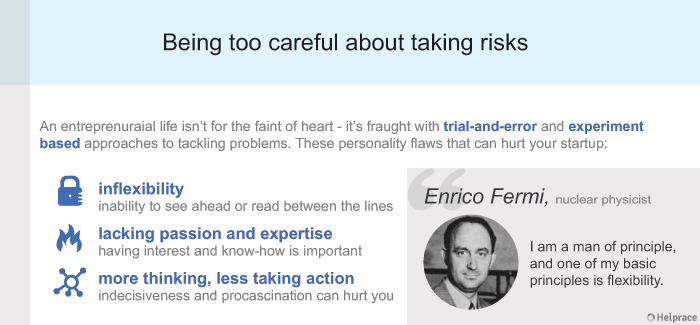
Recognize that you’re going to make mistakes, even big ones. It’s important to be able to pick yourself up, learn from what happened and move on. This is particularly important to get into the right mindset for tackling the next hurdle.
7. Dismissing business coaching
Many startups end up hiring young or non-experienced people to save on cash. What’s worse, startups also have trouble motivating, rewarding and reaching goals with their team – something that could be remedied with a good business coach.
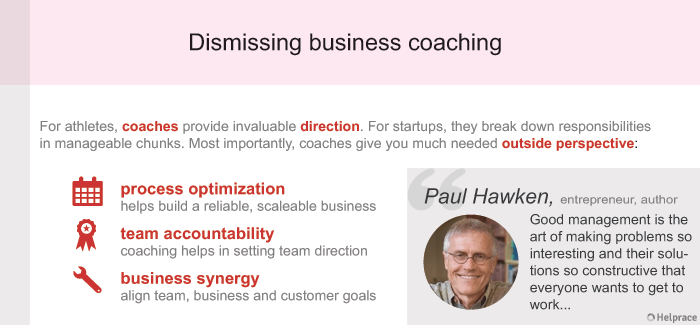
A coach can offer new perspectives and insights for growing your business with whatever resources you already have. When you can’t figure out what’s stunting growth, it may make sense to consult a professional to help realize your vision.
8. Not knowing when/how to say no
Just as it’s important to know when to take a calculated risk, it’s also important to be risk averse. Otherwise it’s easy to fall into the trap of making everyone happy. Stress and overwhelm can lead to you astray – focusing your attention on things that are unimportant.

A “no” on the other side is never really final, either. Ideas change, interests can align, businesses pivot, and life goes on. Mistakes and obstacles can all be overcome. The most important thing is knowing when to jump the “sinking ship”.
9. Ruling out professional help
Being a one-man operation is difficult, but sometimes you simply can’t focus on one important thing without letting another (equally important) thing slip. Time and money are finite resources, and knowing how to manage the two is your biggest asset as an entrepreneur.
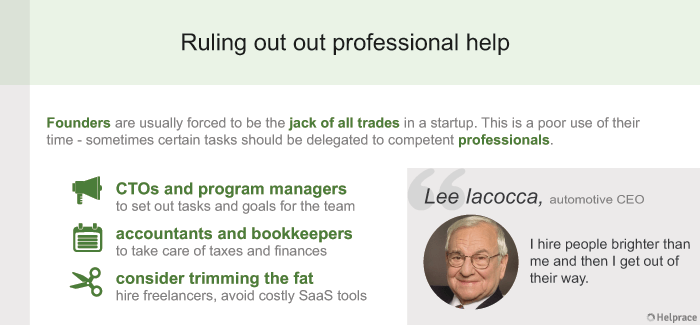
If you already have a full time employee (a designer or developer) working on an important new update, you can’t distract them to do menial tasks. Consider outsourcing or contracting out some type of work.
10. Spending money before you’re ready
No one wants to lose money, especially if you’re sacrificing a lot. The golden rule is two fold, then: a) Don’t quit your day job and b) Do more with less as much as possible.

When looking to invest your savings, don’t over-exert yourself. Ensure that you can pay yourself and keep a roof over your head. This will keep you above water and focus your attention on running your business.
This is a version of the post that appeared on the Helprace Blog.
Business & Finance Articles on Business 2 Community
(57)
Report Post








